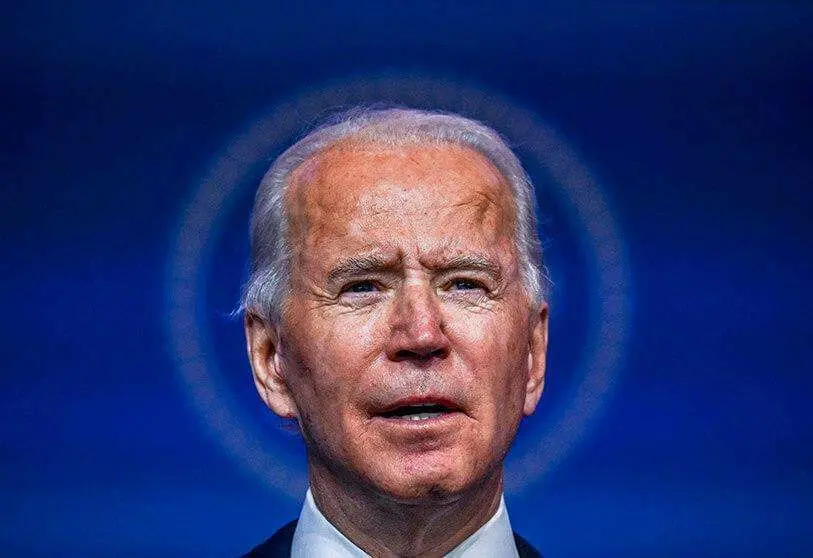Biden's Middle East policy

As much as Joe Biden would like to move away from the Middle East to concentrate his efforts on the Asia-Pacific region, which has become the economic centre of the world, reality is stubborn and the Middle East will continue to demand his attention, as it did under Barack Obama and Donald Trump.
Biden has expressed his desire to bring the troops home and in fact Trump reduced the number of troops stationed in Iraq, a country of growing instability, to just 2,500 in the last days of his presidency, as well as in Afghanistan, where the Doha negotiations with the Taliban are progressing slowly, mainly due to intra-Afghan disagreements and where the withdrawal of US troops is viewed with apprehension by some and as an anticipated triumph by others. It is logical for the US to be worn down by long wars that cannot be won, that people understand less and less, that cost a great deal in terms of blood and money and that do not even make the region safer, and for this reason it is also understandable that the desire to bring the boys stationed there back home is understandable, especially if one takes into account that the US is self-sufficient in oil and consequently the Middle East loses much strategic interest for them (although they cannot be indifferent to the growing Chinese presence either). Moreover, Israel seems increasingly secure militarily and diplomatically, both because of the multi-year arms sales programmes concluded under Obama and the recent normalisation of diplomatic relations that Trump has sponsored between the Hebrew state and the United Arab Emirates, Bahrain, Sudan and Morocco... for now. As for the third US objective in the region, which was to prevent Russia's entry, this has not been achieved and Washington seems to have resigned itself to it. From now on, the fight against terrorism and the Islamic State's attempts at resurgence will be carried out with drones and commando operations that do not require large deployments of forces.
Biden will maintain the solid steel alliance that the US has had with Israel for decades although he will try not to be as biased as Trump has been in favour of Israeli interests. He will not agree to move its embassy to Jerusalem, but will not withdraw it, will be less complacent about the increase in settler housing in the occupied West Bank, will resume humanitarian and economic aid to the Palestinians, who have called elections to facilitate this after fifteen years without doing so, and will continue to give formal support to the two-state solution with secure borders, however much the Israeli settlements complicate it immensely. If the Palestinians are able to overcome their internal divisions and come to their senses, they will realise how much their position has weakened recently as Israel's has strengthened, and they will become more realistic, more flexible and more pragmatic. In the end, inflexibility has only made them worse off with each passing day.
The US's relationship with the UAE and, above all, Saudi Arabia, is also unlikely to be as warm as with Trump, who has sold them sophisticated weaponry and supported them in the Yemen war that has become both a military and humanitarian disaster. Following the UAE's exit from the conflict, the US is likely to stop supporting Saudi military operations and stop selling Riyadh weapons for that war. Greater firmness on human rights issues is also to be expected because the Kashoggi case is truly intolerable and domestic repression continues unabated. But the Kingdom is very important, as is the UAE, in the confrontation with Iran, and this will qualify the estrangement, as Washington is aware of the importance of both countries in the new balance of power that is being designed in the region, where Russia and Turkey are also seeking to gain a foothold. Biden is also likely to try to push the parties towards an agreement to end the bleeding in Yemen, which is something that appeals to his humanitarian sentiments.
Iran will be another matter. Biden is a supporter of the JCPOA (Joint Comprehensive Plan of Action) signed by the international community with the Islamic Republic and which was being complied with according to the IAEA (International Atomic Energy Agency) when Trump unilaterally denounced it and established a "maximum harshness" regime that has wreaked havoc on the Iranian economy. Biden is willing to talk to Tehran and Khamenei has said he is willing to talk to Tehran, the problem is that they want to talk about different things: Iran wants to talk about lifting sanctions and going back to what was agreed in 2016, while Biden wants to add to what was agreed then other issues such as Iran's missile policy or its regional interference, and these claims are rejected by Iran without the upcoming presidential elections in June facilitating the flexibility that is so lacking in this country at the moment.
Ever since Obama let the red line he himself had set on the use of chemical weapons by Bashar al-Assad's regime slip, Syria has disappeared from the US radar to fall squarely on those of Turkey, Russia ... and Iran. It is curious that the US withdrawal has returned the region to the confrontation between the heirs of the old Ottoman, Tsarist and Persian empires that have marked its history over the centuries.

